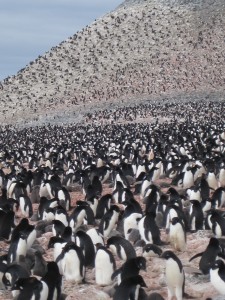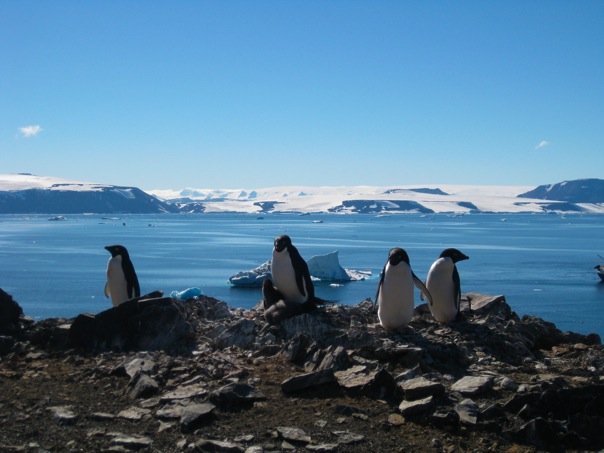
By Maeve Hogel
In 2005, when I was only 12 years old, I asked my parents for something extremely unusual; a trip to Antarctica. To be honest, I have no idea what sparked my interest in Antarctica, but my parents, being avid travellers, looked into taking the trip. After much research, they told me no because trips were only available in January and February, the heart of Antarctica’s summer and the middle of my school year. I vowed that day that I would make it to Antarctica someday. Little did I know that someday would be only a few years later in 2008. The retreating ice was allowing boats to arrive at Antarctica as early as December 25 at that time. For my 15-year-old self, this was the greatest news I had ever heard. However, once we got there, I started to understand that although this loss of ice and increased temperatures allowed me to take the trip of my dreams, it also meant decreased penguin populations and possible rises in sea levels all over the world. All of a sudden the concept of global warming, which was a hot topic of conversation at that time, seemed much more real to me. I was amazed that in just three years, there could be enough of a change to allow tourists to get to Antarctica several weeks earlier. It has now been six years since I was in Antarctica and the IPCC in its most recent report, last year, stated, “there is high confidence that the Antarctic Ice Sheet is in a state of net loss”. Today I looked at the National Geographic website, at the exact trip that we took, and saw that their tour dates now start as early as November 28th, almost a full month earlier then what was available six years ago.
I am amazed now, that in 2008, when I was just beginning to understand global warming, so was the rest of the world. The history of the discovery of global warming, although very complex, is relatively short. Spencer Weart in his book The Discovery of Global Warming” does a fantastic job showing the progress and evolution of global warming. Although he cites discoveries as early as the 1920s, the majority of discussion about global warming doesn’t begin until the 1970s and it wasn’t until the late 90s into the 2000s that these discoveries start to become accepted. Weart writes that “Business week called 2006 ‘the year global warming went from controversial to conventional for much of the corporate world”’ (Weart, 188). In every year since 2006, I think we have seen global warming becoming more and more conventional, but that isn’t to say that there aren’t still people who doubt its existence completely. The acceptance of global warming and the policies to prevent it have come along way in the very short period of time since its discovery, and hopefully will continue to evolve at such a rapid pace. However, it takes the efforts of every person and every country to combat such a global issue. As we look to what the future of climate change looks like, its important to begin to recognize the effects its already had in our very recent past and present, and you certainly don’t have to go half way around the world, like I did, to understand that.

